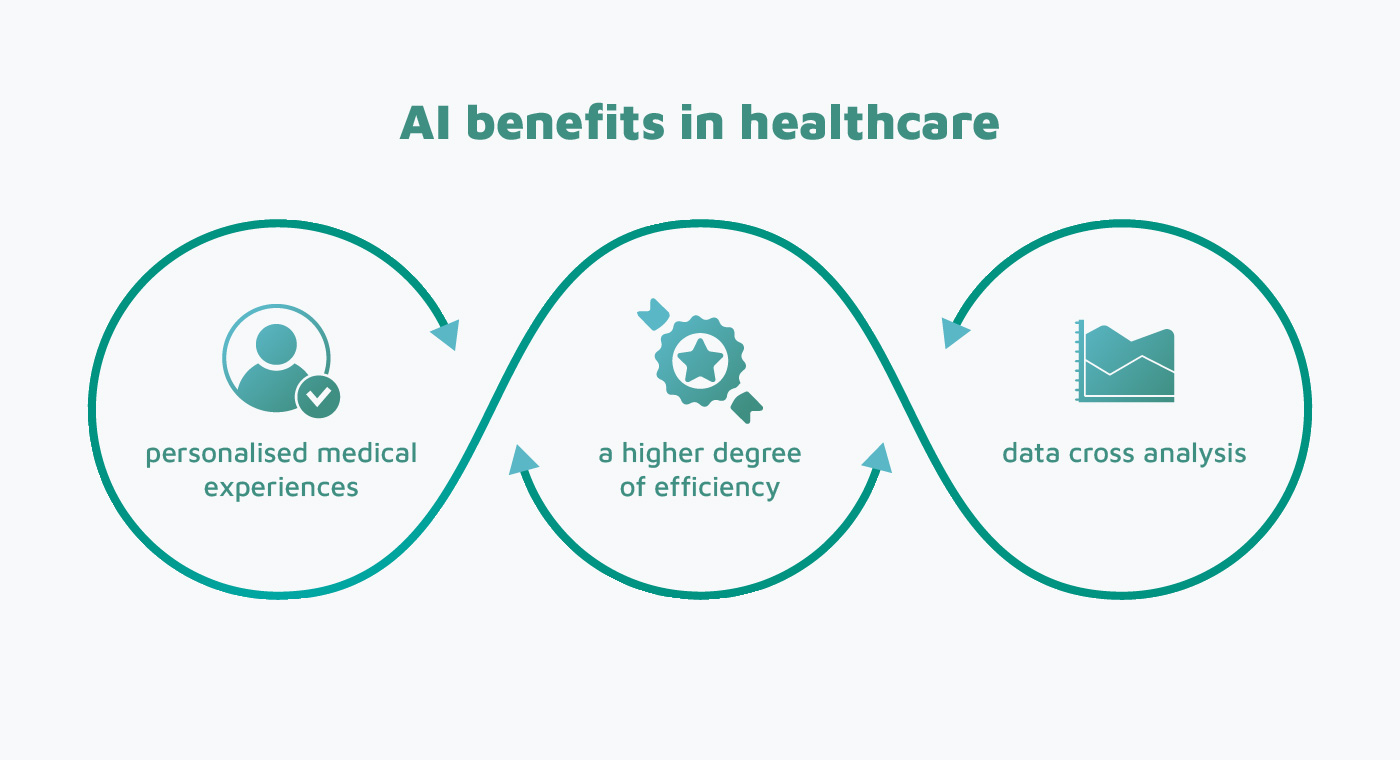AI in healthcare and machine learning have opened the way for the healthcare digital transformation (also known as digital health or e-health), i.e. a set of hardware and software solutions that enhance diagnostic and treatment capabilities.
Artificial intelligence in healthcare makes it possible to analyse large amounts of data (big data), discovering patterns and finding information that humans would find more difficult to obtain.
Table of contents
Use of AI in healthcare
Using machine learning and increasingly sophisticated AI, such as ChatGPT from Californian OpenAI, it’s possible to quickly extract accurate patient information and make important clinical decisions based on data processing.
Let’us now look at the most frequent uses of artificial intelligence in healthcare.
Creating summaries
A Pittsburgh, Pennsylvania-based company, Abridge, has developed healthcare software that uses AI to create summaries of conversations between doctors and patients to help the former identify the most relevant information for diagnosis. This system also helps doctors save large amounts of time because it ‘takes notes’ for them.
Abridge’s software is based on a combination of machine learning algorithms, language models and datasets. Currently being tested at the University of Kansas, this type of use of artificial intelligence in healthcare could be one of the most widely used in the future.
Answering clinical questions
AI will one day, when it reaches a higher level of accuracy, be able to answer clinical questions and so help doctors treat patients. One example of generative AI capable of answering clinical questions is that developed by the US company Atropos Health, which draws on millions of anonymous medical medical files to produce observable research. The results are then reviewed by the company’s internal staff.
Creating synthetic folder copies
An alternative way of using artificial intelligence in healthcare is to create synthetic copies of patients’ original medical folders. These, together with a careful analysis of the available medical literature, allow diagnoses to be assisted.
This is done by the San Francisco-based company Syntegra for the well-known Belgian pharmaceutical company Janssen, which states that as these are “synthetic versions” they are not subject to the GDPR and therefore the data they contain can be freely processed.

AI benefits in healthcare
Having seen what the uses of artificial intelligence in healthcare are, let’s now look at the benefits it brings.
Provides user-focused experiences
Analysing big data and machine learning, it’s possible to offer personalised medical experiences with increased user satisfaction.
Improves the efficiency of healthcare organisations
The use of AI in healthcare can improve the processes and performance of medical staff, ensuring a higher degree of efficiency.
Allows you to cross-reference data
Health data often come from different sources. AI is able to identify and link them, producing a clearer picture.
AI and natural language
The main feature of modern AI is that it is able to communicate with us through natural language. This allows health professionals to quickly obtain the information they need.
Natural language processing (NLP), in fact, helps AI to identify the meaning of words in relation to the context or mode of use (sentiment, humour, irony, sarcasm, etc.). Implementing NLP in AI means, therefore, equipping the machine with a conversational system that allows the physician to converse with it on a par with a colleague.
Get AI support
The health IT field has a responsibility to create systems that help ensure fairness and equality in clinical trials, hence optimal health outcomes for all.
If you head a clinic or work in the public administration and would like to take advantage of the benefits of AI in healthcare, please contact us by filling out the contact form or by calling +39 0954683879.
IPPOCRATE AS is a software house specialised in the development of m-health, e-health solutions and the implementation of AI in healthcare.
The company is part of the well-known JO Group cluster and is involved in research and development activities both in Italy and abroad.

